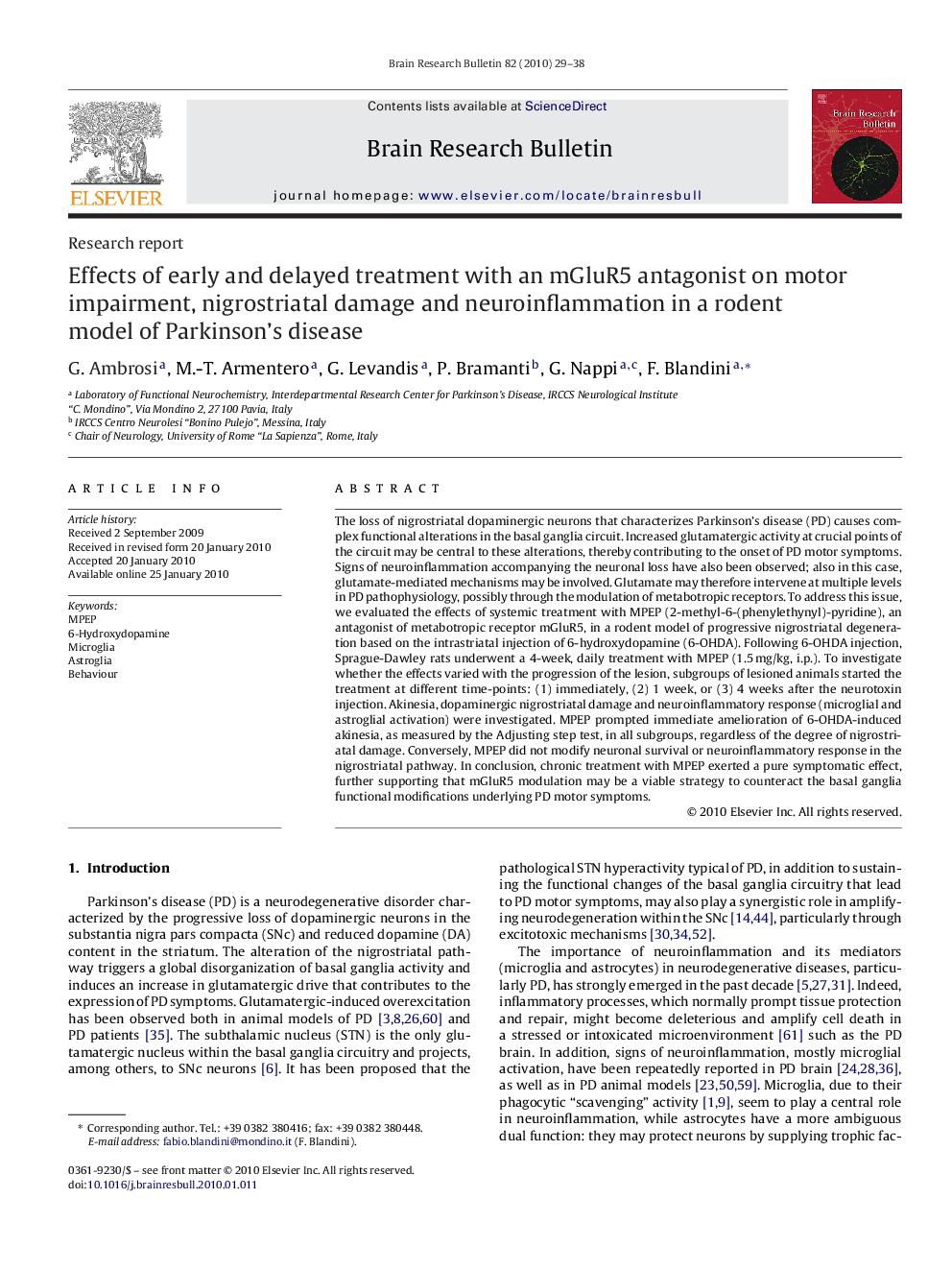| Article ID | Journal | Published Year | Pages | File Type |
|---|---|---|---|---|
| 4319117 | Brain Research Bulletin | 2010 | 10 Pages |
The loss of nigrostriatal dopaminergic neurons that characterizes Parkinson's disease (PD) causes complex functional alterations in the basal ganglia circuit. Increased glutamatergic activity at crucial points of the circuit may be central to these alterations, thereby contributing to the onset of PD motor symptoms. Signs of neuroinflammation accompanying the neuronal loss have also been observed; also in this case, glutamate-mediated mechanisms may be involved. Glutamate may therefore intervene at multiple levels in PD pathophysiology, possibly through the modulation of metabotropic receptors. To address this issue, we evaluated the effects of systemic treatment with MPEP (2-methyl-6-(phenylethynyl)-pyridine), an antagonist of metabotropic receptor mGluR5, in a rodent model of progressive nigrostriatal degeneration based on the intrastriatal injection of 6-hydroxydopamine (6-OHDA). Following 6-OHDA injection, Sprague-Dawley rats underwent a 4-week, daily treatment with MPEP (1.5 mg/kg, i.p.). To investigate whether the effects varied with the progression of the lesion, subgroups of lesioned animals started the treatment at different time-points: (1) immediately, (2) 1 week, or (3) 4 weeks after the neurotoxin injection. Akinesia, dopaminergic nigrostriatal damage and neuroinflammatory response (microglial and astroglial activation) were investigated. MPEP prompted immediate amelioration of 6-OHDA-induced akinesia, as measured by the Adjusting step test, in all subgroups, regardless of the degree of nigrostriatal damage. Conversely, MPEP did not modify neuronal survival or neuroinflammatory response in the nigrostriatal pathway. In conclusion, chronic treatment with MPEP exerted a pure symptomatic effect, further supporting that mGluR5 modulation may be a viable strategy to counteract the basal ganglia functional modifications underlying PD motor symptoms.
